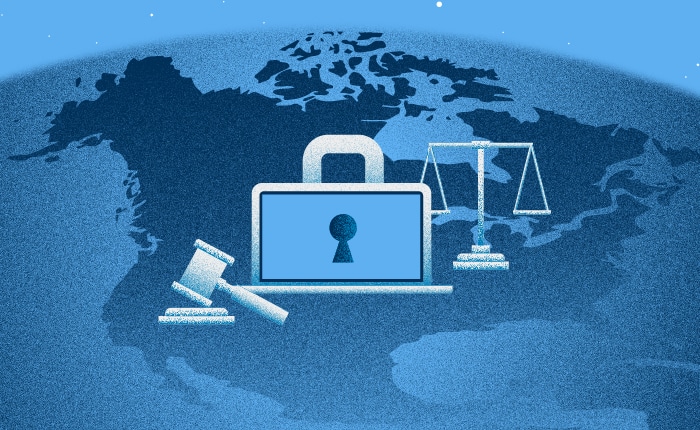Understanding Data Privacy Laws sets the stage for navigating the complex landscape of digital privacy regulations, shedding light on crucial aspects that impact individuals and businesses alike.
From the fundamental principles to real-world examples, this discussion dives deep into the world of data protection and compliance.
Overview of Data Privacy Laws: Understanding Data Privacy Laws
Data privacy laws play a crucial role in today’s digital world, where vast amounts of personal data are collected, stored, and shared online. These laws are designed to protect individuals’ privacy rights and ensure that their personal information is handled securely by organizations.
Key Objectives of Data Privacy Laws
- Protecting individuals’ personal data from unauthorized access or use.
- Ensuring transparency in how organizations collect, process, and store personal information.
- Empowering individuals with rights over their own data, such as the right to access and correct their information.
- Promoting accountability and responsibility among organizations that handle personal data.
Data Privacy Laws Across Different Countries
Data privacy laws vary significantly from country to country, with some regions having more stringent regulations than others. For example, the General Data Protection Regulation (GDPR) in the European Union is considered one of the most comprehensive data privacy laws globally, setting strict standards for data protection and privacy. In contrast, the California Consumer Privacy Act (CCPA) in the United States focuses on giving consumers more control over their personal information.
Examples of Data Privacy Regulations
- General Data Protection Regulation (GDPR): Implemented in the EU to protect the personal data of individuals and regulate how organizations handle this data.
- California Consumer Privacy Act (CCPA): A state law in California that gives consumers more control over the personal information collected by businesses.
- Personal Information Protection Law (PIPL) in China: A comprehensive data privacy law that regulates the collection and use of personal information within China.
Components of Data Privacy Laws

Data privacy laws typically consist of several key components that aim to protect individuals’ personal information and govern how organizations handle data. These laws are crucial in maintaining individuals’ privacy rights and ensuring data security in today’s digital age.
Rights and Protections Offered to Individuals
- Data privacy laws grant individuals the right to access and control their personal data, including the right to know how their data is being used and processed.
- Individuals have the right to request the correction or deletion of inaccurate or outdated personal information held by organizations.
- These laws also require organizations to obtain explicit consent from individuals before collecting or processing their personal data.
- Individuals have the right to be informed in case of data breaches that may compromise the security of their personal information.
Role of Data Controllers and Processors
- Data controllers are responsible for determining the purposes and means of processing personal data, while data processors act on behalf of data controllers in processing this data.
- Both data controllers and processors are required to implement appropriate security measures to protect personal data from unauthorized access, disclosure, or alteration.
- They must also ensure that personal data is only used for legitimate purposes and that individuals’ privacy rights are respected throughout the data processing lifecycle.
Examples of Recent Data Privacy Law Violations
- Facebook’s Cambridge Analytica scandal in 2018, where the personal data of millions of Facebook users was harvested without their consent for political purposes, resulted in a $5 billion fine imposed by the Federal Trade Commission.
- Equifax’s 2017 data breach, which exposed the personal information of over 147 million individuals, led to a settlement of up to $700 million to compensate affected consumers and enhance data security measures.
Compliance Requirements
Organizations are required to take specific steps to comply with data privacy laws in order to protect the personal information of individuals and avoid legal consequences.
Steps for Compliance
- Implement Data Protection Policies: Organizations must establish clear policies and procedures for handling personal data, including how it is collected, stored, and shared.
- Conduct Regular Audits: Regular audits should be performed to assess data privacy practices and identify any areas of non-compliance.
- Provide Employee Training: Employees should be trained on data privacy laws and best practices for protecting sensitive information.
- Ensure Data Security: Organizations must implement appropriate security measures, such as encryption and access controls, to safeguard personal data.
Challenges Faced by Businesses
Businesses often face challenges in adhering to data privacy regulations due to the complexity of the laws, the rapid pace of technological advancements, and the increasing volume of data being collected.
Strategies for Ongoing Compliance
- Stay Informed: Organizations should stay up-to-date on changes to data privacy laws and regulations to ensure ongoing compliance.
- Implement Privacy by Design: Incorporating privacy considerations into the design of products and services can help ensure compliance from the outset.
- Regularly Review and Update Policies: Data protection policies should be reviewed and updated regularly to reflect changes in laws and best practices.
Best Practices for Data Protection
- Minimize Data Collection: Only collect the personal data necessary for the intended purpose and avoid collecting unnecessary information.
- Obtain Consent: Obtain explicit consent from individuals before collecting their personal data and provide clear information on how it will be used.
- Secure Data Transmission: Use encryption and secure channels when transmitting personal data to prevent unauthorized access or interception.
- Monitor Third-Party Compliance: Ensure that third-party vendors handling personal data also comply with data privacy laws to prevent data breaches.
Impact of Data Privacy Laws

Data privacy laws have significantly impacted both businesses and consumers in the digital age. These laws have reshaped the way companies collect, store, and use customer data, leading to increased transparency and accountability.
Business Operations
- Businesses are now required to obtain explicit consent from individuals before collecting their personal information.
- Companies must implement robust security measures to protect customer data from breaches and cyber threats.
- Data privacy laws have led to the rise of data protection officers within organizations to ensure compliance with regulations.
Consumer Trust, Understanding Data Privacy Laws
- Consumers are more aware of their rights regarding the privacy of their personal information.
- Data privacy laws have empowered individuals to have more control over how their data is used by companies.
- Increased transparency in data handling practices has helped build trust between businesses and consumers.
Benefits of Data Privacy Laws
- Protection of sensitive personal information such as financial data, health records, and contact details.
- Reduction in the risk of identity theft and fraud due to stricter data protection measures.
- Enhanced data security practices leading to better safeguarding of customer information.
Future Trends
- Continued evolution of data privacy laws to keep pace with technological advancements and emerging threats.
- Focus on global data protection standards to address cross-border data transfers and international data flows.
- Integration of privacy-by-design principles in product development processes to prioritize data protection from the outset.
